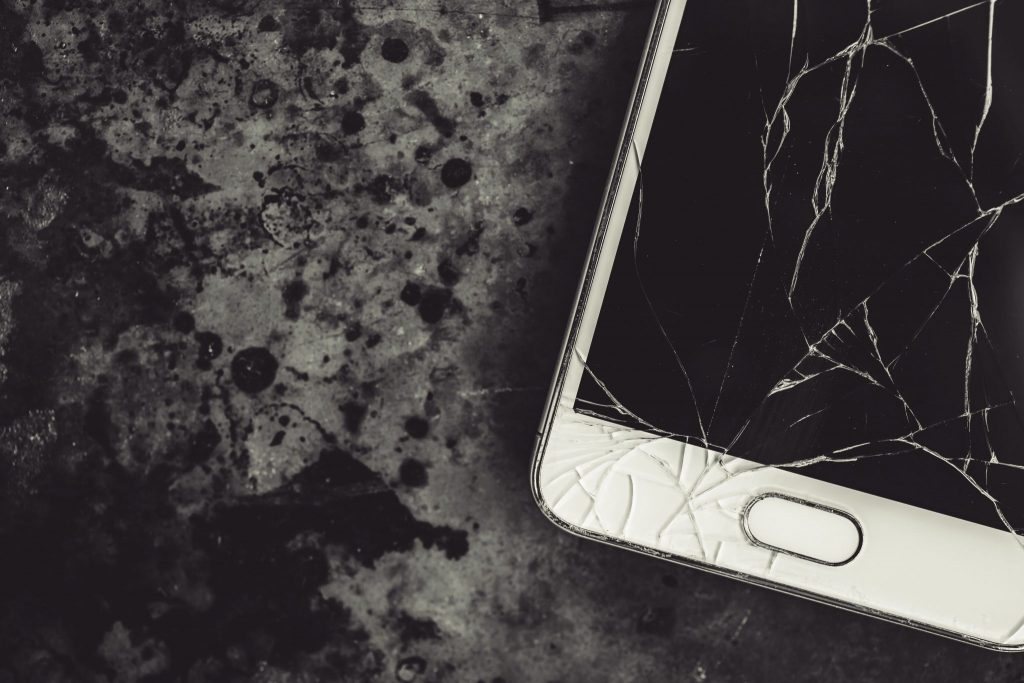The Circle
Is perpetual growth natural?
We all define ourselves through several qualities. Not by our flaws.
We do this because, throughout our lifetime, we’ve been rising together with the world around us. Businesses developed, many industries prospered and people, well, allowed themselves to ride the wave of eternal growth, viewing it as their victory, not the surrounding world, that took us on the adventure of constant growth.
We have become so accustomed to the ever-growing world, that we have defined our indicators of economic and social well-being through growth. It was the only number that mattered. Although nature, accustomed to the idea of survival, has always shown us that perpetual growth is not healthy. Cancer is the best example.
Year after year, even when we complained that it was hard for us, we kept going at the speed of light toward a future we’ve always imagined grandiose and thriving.
Whenever we hit a bump in the road we resorted to increasingly efficient economic and social buffers, hoping that tomorrow, tomorrow everything will surely be better.
[bctt tweet=”Avocatnet.ro founder Alin Popescu: We have become so accustomed to the ever-growing world, that we have defined our indicators of economic and social well-being through growth.” username=”brand_minds”]

Hitting the wall
Then, within just a few days, some believe the world has hit a wall. At the speed of light. And pieces of the world scattered making the reconstruction afterwards almost impossible.
In a society used to feeling good even when complaining about a bad situation, the last month has been very similar to the Apocalypse. Military laws, rules that keep us all at home and social distancing as we’ve never experienced before. Chaos in the minds of the politicians leading us, chaos in the minds of many entrepreneurs and team leaders, chaos in social behaviour in general.
Is it the end of our ever-growing world?

If today is the end of anything ….
We all define ourselves through several qualities. Not by our flaws. We do this because, throughout our lifetime, we’ve been rising together with the world around us.
If today is the end of anything, then it is the end of some of the qualities that defined us until now. And the birth of some flaws that have always existed, but were previously ignored.
If today is the end of anything, then it is the end of the idea that many people are really good at doing business. There’s one thing to grow together with the market, and another to succeed despite it. There’s one thing to define your world through permanent growth targets, based on a perpetual and rollover debt, and another to think of your business as a living organism, which has to cope with joy and sadness, illness and age crisis.
Today is not the Apocalypse
Today is not the Apocalypse. It is typical for us humans to associate the small hardships of life with the burden of Atlas, the mighty titan responsible for bearing the weight of the heavens on his shoulders in Greek mythology.
The world will continue to exist beyond 2020, and nations and companies will continue to follow perpetual growth, ignoring rules and signals once again, building on sandy ground, optimizing their taxes and complaining, at the same time, that they are living a hard life.
And we will pride ourselves again with all of our qualities, hiding the newly discovered flaws under an increasingly thick carpet of forgetfulness.
This is not wrong, although it’s not right either.
It is only human nature, which we can never deny.
Join the Conversation
We’d love to hear what you have to say.
Get in touch with us on our LinkedIn Group, Facebook Group or Twitter.
The Story of U. Chapter Two: Friendship and Business
The Story of U, the twenty-first letter of the alphabet continues. Read Chapter One: Patience.
When the first letters of the world gathered, U was late. Most people in the world already used him, and he believed that was enough. He had a safe place in the Roman alphabet.
Only the Romans did not care. Who was not present, did not exist. And U was gone. Officially.
For centuries, V continued to keep a place for U among the letters of the world. He stubbornly worked for two, because he believed in his friend. Yeah, U was a jerk. But deep down, U was an extraordinary letter. And V saw this from the beginning. He believed in true friendship.
After 2500 years of work, V helped U acquire his rightful place among the letters of the modern alphabet. He gave U a place, right in front of him, in the line of letters that we all learn today.
U’s story is, therefore, a story of true friendship, of someone who stubbornly sees in a friend more than everyone else.

We all believe in fairy tales. We grow up with them and, for a good part of our lives, they control our actions. Not because they are necessarily true, but because they bring to mind the idea that the end of all things must be a happy one.
I have seen many people starting out in business with the belief that the future, no matter how difficult, must be predictable and happy. So they use their lifetime savings, they get a new mortgage and, shortly after, end up being thrown into the unknown without a safety net.
And the truth is, for most entrepreneurs, such an attitude is destructive. Regardless of how things evolve, the ever-present fear of the unknown, the constant walk on the wire that is way up high, all these become sources of emotional bruises that are difficult for anyone to understand.
Bruised by such events, many entrepreneurs remain traumatised throughout life and often become dysfunctional human beings. They are nothing but machines, focused only on financial results, networking and other words that ordinary people do not even understand.

Is there friendship in business?
The story of U and V are today more and more difficult to observe in the entrepreneurial world. Many friends are on the road together, building businesses. It’s just that over time their friendship is replaced by something else. Modern business books even highlight the fact that business and friendship do not go well together.
Modern entrepreneurship often creates monsters, people who endlessly repeat that business is business, that you should not have ethical or moral expectations as long as the action in question is not illegal.
Long ago, the morals of a community gave birth to the first laws. And then time passed, year after year, century after century. Humanity evolved and overcame crises and periods of calm, built cities, spaceships and smart shoes. Over time, the law has outgrown its teacher and transformed into a kind of outdated concept that no longer impresses anyone.
Today, the law is much stronger than public morals. Not because someone decreed as such, but because a lot more people look to law books, instead of looking in their hearts when it comes to interacting with their peers.
The story of U and V is increasingly difficult to find in business, and that will cost us, in the not too distant future, more than we think. Because history has shown us that the evolution of a social system depends little on its results and a lot on how people perceive it.
Learn more: 3 friendships that changed the world
This is also why I believe that when such examples emerge in the business world, they should be applauded. Basically, they still hold the business world in the area where it can be controlled by humans, not robots.
Join the Conversation
We’d love to hear what you have to say.
Get in touch with us on our LinkedIn Group, Facebook Group or Twitter.
The Story of U. Chapter One: Patience
The struggle of U, the twenty-first letter of the alphabet
U didn’t get a place in the alphabet right from the start. U had to fight hard to become a letter of equal rights. It was the fault of the Romans who included in their alphabet only 23 letters when they first created it, in the 7th century BC. In that alphabet, J, U, and W were ignored.
To make it even more embarrassing, U was written, for a long time, using the letter V. When V was at the beginning of a word, it was read like the V of today. When, however, it was written in the middle of a word, people read it like U. How not to feel depressed? Who wouldn’t scream when looking at the smashing V who was managing two letters at once?
But U focused more, endured and continued to hope. Redemption came somewhere in the 18th century when U acquired its true position in the alphabet. At that time, the French Academy acknowledged his right to be a letter like all the others. The story of U is, therefore, the story of a daring letter, a letter we ignore daily, hidden in the multitude of other letters that pass before our eyes: U, the letter that fought 2,500 years to succeed.

Building a business takes time
It takes time to build a business. And yet, we often forget that. It is as if we asked a newborn to walk, talk or solve second-degree equations well ahead of their time. We, modern people, are used to it. To be ambitious, to move fast and to accept that sometimes, in this whole process, someone would suffer. Move fast and break things is the motto which best reflects the expectations of our time, although everyone rejects it emphatically.
In recent years, I have conducted an informal survey of people I’ve met with. Most of them were either trying to open their first business or were already in a major business line. Because this is what usually happens, the meeting took place when they were feeling they needed extra fuel, mentally, to develop their businesses. The most important thing I noticed about these people was their lack of patience. No one imagined the business he or she was planning or working for at the time could bring satisfaction in 5 or 10 years. No. They were expecting instant success.
It felt weird when I realized this. It felt weird when I realized that the most important thing I could do for these people was to teach them to be patient. To plan everything out as thoroughly as possible, to take time for analysis and always to offer the market the products and services the market needs. Many studies say that this is the most important reason companies fail: lack of customers for their offer. Lack of a realistic plan developed by the entrepreneur.
Then I realized business is not the only slice of life where we do that. No. We raise our children trying to take them to dozens of activities at once, in a sort of fast-forward childhood, worshiping the idea that they will become overnight the people we expect them to become. We are quick to exit our marriages at the first signs of crisis, convinced that somewhere, sometime, we will find our perfect match. We would rather binge-watch entire TV series, one season after the other because we have no patience to wait, week after week, for a new episode. We want our cars to accelerate as quickly as possible and we expect the other drivers to step away at once.
This kind of life leaves a heavy mark on our minds and bodies. We always blame external factors (pollution, politicians, ultraviolet rays and others), although much of our unhappiness is due to the chaotic nature of our quest for happiness. Our feelings, our experiences need the speed of a fast-food restaurant. We are living in an age when modern man is no longer patient with time.
In business, this attitude is why most start-up companies fail during their first years. The reality is that they fail at the first signs of crisis or at the first obstacle, not even a major one, which appears further down the road. Because they, businesses, are like little kids. You have to give them the chance to learn what life is all about. And learn from that experience along with them. A business that grows by 10% – 20% in the first years of existence is viewed as an abominable creature which must be killed at once. Although, if one were to give it a little time to understand what is going on, it is possible that, in the future, 20 % could become 50% or higher.

Conclusion
When building a business, remember the story of U.
Good ideas generally need time to prove their value. Of course, there is the exception of ideas that bear fruit immediately, but that is just an exception because they are as rare as winning the lottery. And, in keeping with this comparison, it may be cheaper to play the lottery than to invest in a business where you rely on serendipity to guide you.
When you start a business, don’t hurry. Allow your business to grow and develop. Give it time and patience.
Join the Conversation
We’d love to hear what you have to say.
Get in touch with us on our LinkedIn Group, Facebook Group or Twitter.


